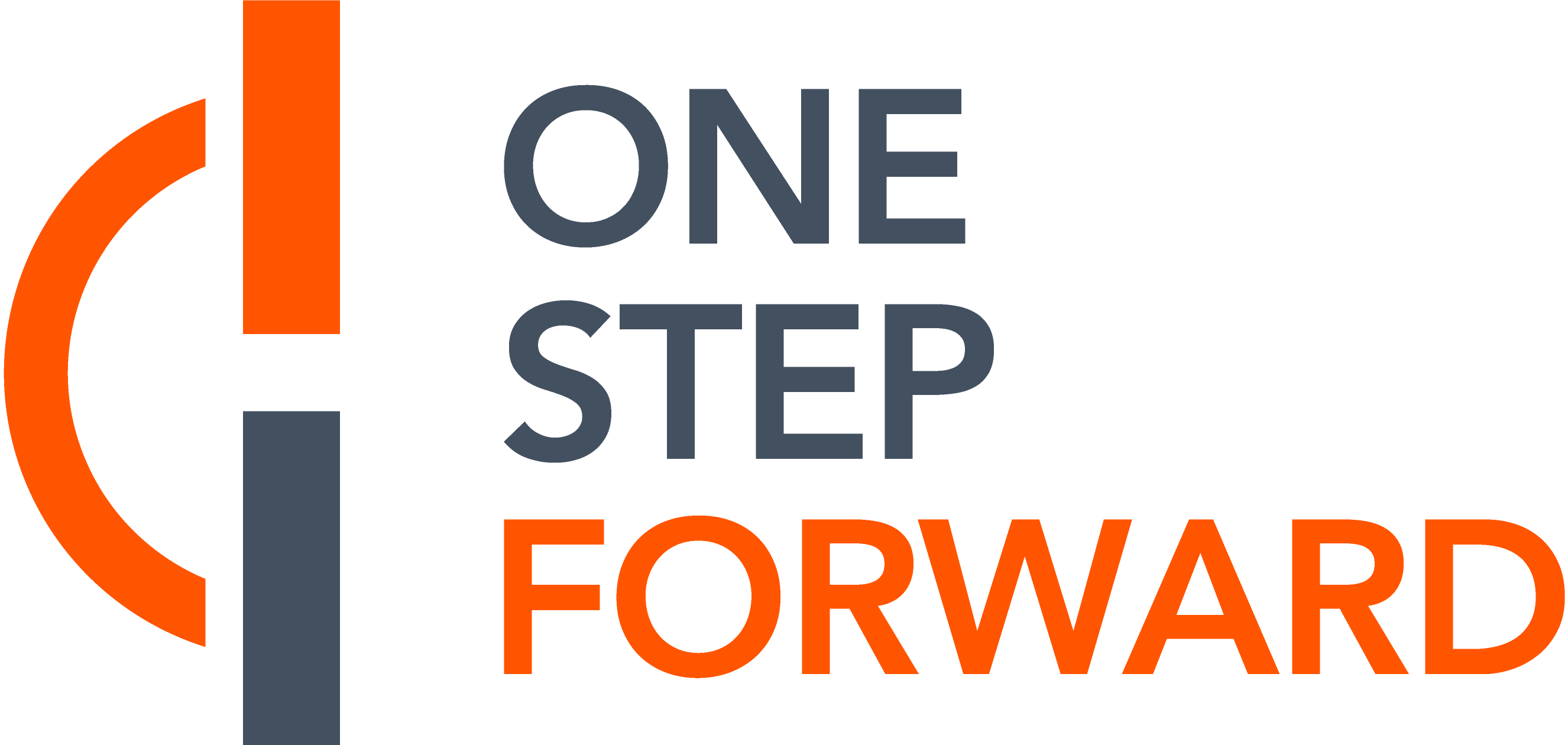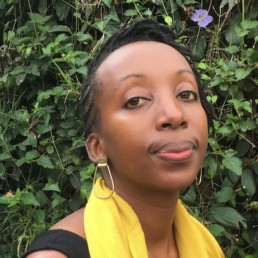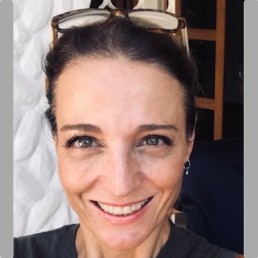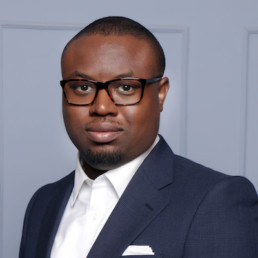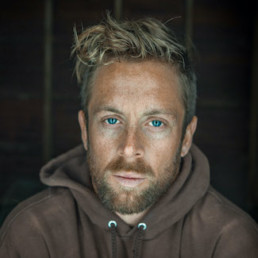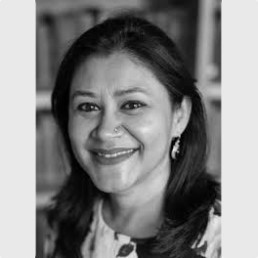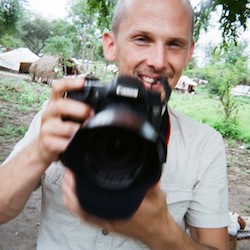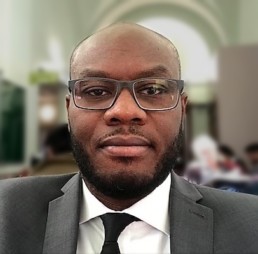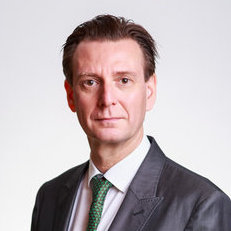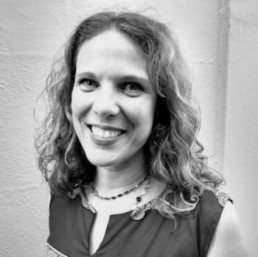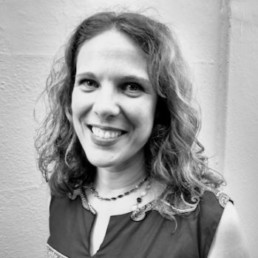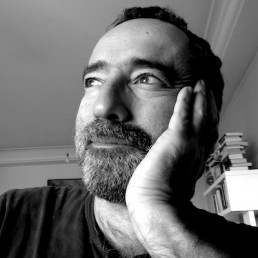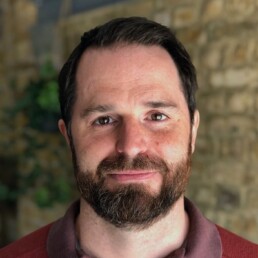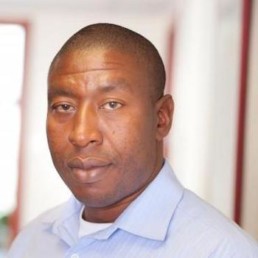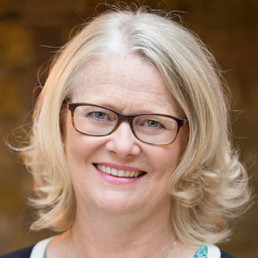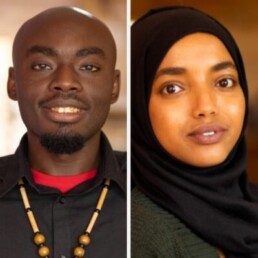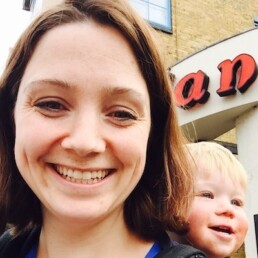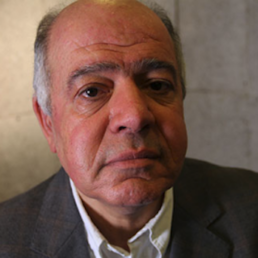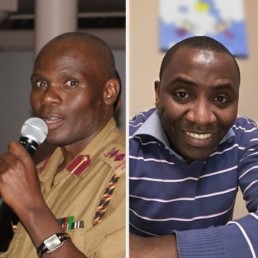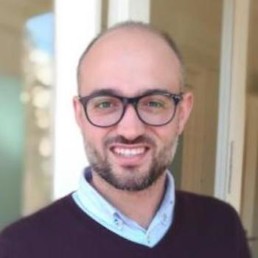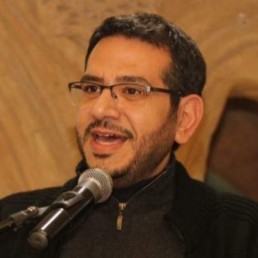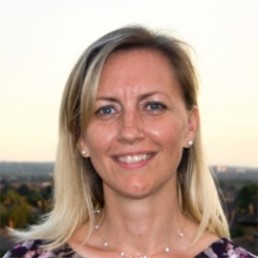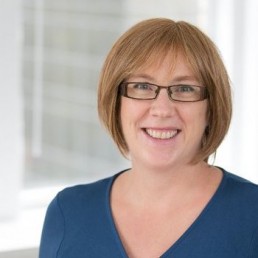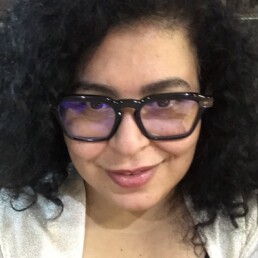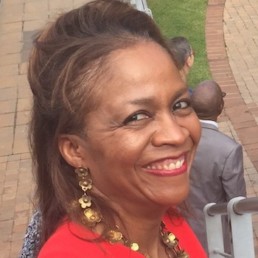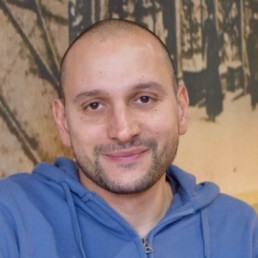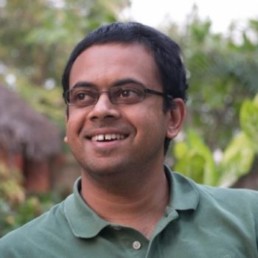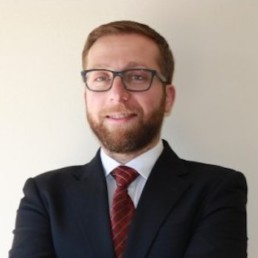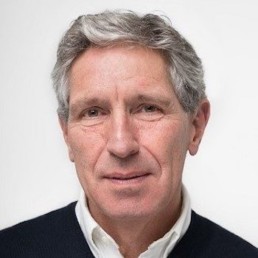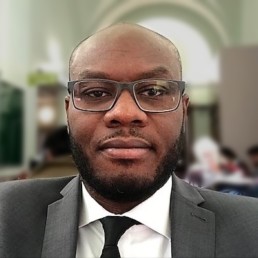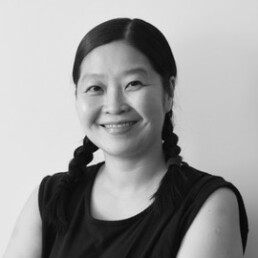#030: Policing & public services as seen from marginalised spaces | Wangui Kimari
“I want to be a dis-planner because planning has not done anything to undo the colonial grids of this city, and you can see that in the life that some residents live.”
Episode notes
Wangui Kimari is an urban anthropologist, currently affiliated with the African Centre for Cities.
She’s done a range of interesting things but this conversation focuses on work in her home town of Nairobi—and in particular the Mathare area, which if you know the city is often labelled as a slum or sort of den of iniquity.
The recurring theme is the attempt to do things differently in the face of a stifling, or broken, status quo. What does public authority and urban planning when seen from the point of view of marginalised communities? What questions do those communities themselves want answered, as opposed to those that researchers want to focus on? And how do the answers fit into a political conversation that’s been built on the rhetoric of “development” for several generations now?
This is a timely episode — not because it is “about” COVID-19, but to equip us to think about distancing & public hygiene as seen from marginalised spaces. What should experiences in the past tell us about how things will play out in the near future?
Topics discussed:
[02:20] Introducing herself as an “urban dis-planner”. The goals of participatory action research in dealing with the experiences of marginalised groups.
[06:25] Growing up in Nairobi. Relational and spatial experiences of extreme inequalities and poverty.
[10:30] Mathare as a marginalised space within Nairobi. Similarities and differences with other poor areas in the city.
[20:50] How residents of Mathare interact with the government and police service. Participatory action research on extra-judicial executions, how these play out and what they look like from the residents’ perspective.
[29:00] The contribution of participatory research within the broader political ecosystem in Nairobi and Kenya more broadly. A network model for social justice action centres.
[32:05] Popular perspectives and attitudes to police killings. The second-order effects of militarised policing on lifestyles, culture, and expression.
[39:40] Ethical quandaries with urban planning & “development” in context of Nairobi. The importance of acknowledging history, and justice, when dealing with marginalised people’s experiences.
[46:20] The tension between participatory research and a traditional academic career. The lack of reward and recognition for this kind of work, and ways around that.
[51:00] Debts that we owe to those who have come before.
#029: At the intersection of politics, conflict & development | Donata Garrasi
Episode notes
Donata Garrasi has worked on conflict dynamics for about twenty-five years. That career spans operational, policy and consulting roles, and her current position is Director of Political Affairs for the UN Special Envoy for the Great Lakes.
In one sense this might sound like a straightforward story. But walking through the steps, it really wasn’t. It was a series of self-starting, purposeful and often risky moves to find ways to make a contribution.
What drives and sustains that kind of motivation? What happens when it’s frustrated by events on the ground that you can’t control? How does it balance with other aspirations in life?
As always, all views are personal and don’t reflect anyone’s official position.
Topics discussed:
[00:00] Describing peace and conflict work to the general public. Unexpected sticking points.
[05:10] Growing up in Italy with an interest in politics. First steps abroad, from an internship in New York to refugee response in the remotest part of Guinea-Conakry.
[12:00] Key learning from early experiences around Liberia, Sierra Leone and Western Sahara. Looking behind humanitarian crises to the political decisions that create them.
[17:35] Strong early role models that understood the why & the how of influencing key decisions. Learning about conflict dynamics at the end of the ‘90s in West Africa.
[22:35] The rationale for moving between different countries. What it means to be a specialist in unpacking and addressing conflict dynamics.
[27:25] A stint in the policy world with the OECD, at the juncture of aid and politics. Trying to help the sector as a whole learn some much-needed lessons.
[36:05] The International Dialogue on Peacebuilding and Statebuilding. Motivation and meaning when working on complex and highly political inter-governmental processes.
[40:30] The opportunities and limitations of consulting work. Freedom versus the frustrations of being peripheral to decision-making.
[44:40] Fitting all the pieces together. Playing big when it comes to highly political jobs, and the highly contentious politics of peace & security.
[51:40] Sustaining motivation when things just aren’t going the right way. When it’s more ethical to move onwards than to stay in place and keep trying.
[59:45] Reflections on a long (and still-evolving) career. Experiences as a woman in the sector.
#028: Public & private diplomacy in West Africa | ‘Tunde Afolabi
Episode notes
Babatunde Afolabi has worked on mediation and conflict transformation in West Africa for pretty much all of his adult life—first at the Economic Community of West African States (ECOWAS), and then with the Center for Humanitarian Dialogue.
This experience spans the full range of political conflict: “democratic reversals” and refusals to leave power, military coups, contested elections, the rise of extremist movements, and entrenched sub-national violence.
With this as background we get into the nuts and bolts of inter-governmental diplomacy, “private” diplomacy, and the differences between the two. This is informed in part by ’Tunde’s own upbringing under a military regime in Nigeria, and the return to democratic rule in 1999.
As always, all views are personal and don’t reflect anyone’s official position.
Topics discussed:
[04:30] Education in Ibadan, in south-west Nigeria. Finding his way due to the right mentor figures at the right time.
10:20] Growing up under a military regime, and becoming politically conscious. Early resolve not to work on conflict in Nigeria, and a fascination with Liberia’s history and culture.
[17:45] Work with ECOWAS on conflict prevention, and the mid-2000s as the high water mark for the institution. Some unconventional but effective approaches in Niger and Guinea.
[27:00] Loss of momentum for ECOWAS conflict prevention as the regional political environment evolved. Deciding to move on to work for West Africa through other means.
[31:15] Pursuing a PhD as an ‘experiment to self-criticise’. Switching focus from Track 1 diplomacy to the role of civil society actors.
[34:40] A second stint at ECOWAS. Knowing when to move on because the conditions aren’t right. Hopes and regrets about the potential of the institution.
[41:30] Moving to the Centre for Humanitarian Dialogue. How “private diplomacy” fits into international conflict resolution, and its distinct niche in West Africa. Efforts in the Gambia, and back in Nigeria (despite early intentions!).
[51:10] Getting ‘access’ as a mediator, and what brings real value to an entrenched conflict. Key skills and relationships developed over a career in the sub-region.
[57:10] Moving from West Africa to a broader remit. Staying humble and curious, and avoiding ‘experts’. Staying focused on the African continent, and ambitions for the future.
[1:04:00] Key points of learning over a rich career in conflict resolution. A few book recommendations to close.
#027: Sparking necessary conversations on extreme inequality | Johnny Miller
Episode notes
Johnny is a photographer and activist who’s based in South Africa. (You can find much of his work here.)
He’s best-known for his drone photo series Unequal Scenes. These images are striking and almost violent: shanty towns abutting stately suburban homes; a slum wedged in beside a gleaming financial district.
In this interview we talk about his broader ambitions to shift the narrative around stark economic inequalities, both in his adopted home of South Africa and further afield.
We get into the artistic process of finding and developing images; the personal costs and difficulties that come with provoking debate; and the power of a different way of seeing to give new perspectives on a very old problem.
Topics discussed:
[04:20] The need for a new narrative around inequality. Difficulties of communicating complex socio-political issues, and learning from the climate action movement.
[07:50] The original “lightbulb moment” where drone photography enabled something very familiar to be seen in a completely new way.
[11:30] The “accidental epiphany” of the very first Unequal Scenes photo, of Masiphumelele in Cape Town. Surprising and almost immediate reactions from all segments of South African society.
[19:20] The process of researching and selecting images. His trademark “violent” style of urban photograph. Scenes that are sticky and resonate with the wider public, versus ones that are equally important but perhaps too subtle.
[29:20] Getting pushback from experts and activists. The ethics of provoking conversation on divisive social/political issues.
[40:00] Some more ground-level work, including with Syrian refugees and in slums around the world. Differences between the “top-down” perspective and looking people in the eyes and building trust.
[46:40] The difference between highlighting structural problems and telling stories. The power of keeping the project tightly focused (despite criticism!).
[52:55] Drone technology as a democratic enabler. The AfricanDRONE network to support communities to tell their own stories, and disrupt industries that need disrupting.
[1:01:15] The place of Unequal Scenes within the political landscape of South Africa. What kind of impact he wants to have as an artist working on inequality and linked political issues.
#026: Conflict transformation in Nepali communities | Preeti Thapa
Episode notes
Preeti Thapa has led community justice and conflict transformation programs in her native Nepal for about sixteen years, working with the Asia Foundation (you can read more on that here).
That experience spans an extraordinarily turbulent period — the tail end of the Maoist insurgency, a drawn-out and highly contentious transition to multi-party politics, a transformative new constitution, and the 2014-15 earthquake.
As a consequence we get into many of the central dilemmas of conflict transformation work. Structural and community-level issues versus the national political drama that captures the international imagination. Informal versus formal mechanisms in meeting aspirations for justice. Progressive social agendas versus working “with the grain”.
And not least of all — the experience of women, and women from the global South specifically, in fields that are all too often male-dominated and hierarchical.
Topics discussed:
[02:50] Community mediation as a process for conflict transformation at the community level.
[06:55] The “co-facilitation” model which strives for a mediation panel that reflects the composition of the community and the disputants, rather than the usual suspects.
[11:55] Dealing with biases and structural injustices. Personal, relational and cultural changes linked to the rise of community mediation in Nepal.
[18:15] The risks and opportunities of rolling out community mediation during an active conflict, and during times of extraordinarily rapid political change.
[26:20] Setting ambitions for conflict transformation efforts in a context with major structural and policy challenges.
[31:50] Early career experiences in the legal system. Frustrations with the justice system as a route to meaningful social change, and as a difficult environment for a woman.
[40:40] Reflections after sixteen years of this work. Contributions to social change outside of the legal profession, versus those what were possible inside it.
[49:00] Key partnerships and influences outside Nepal. Dealing with old-fashioned views on peacebuilding, and on who gets to contribute to that debate.
#025: Bridging the empathy gap through graphic novels | Marc Ellison
Episode notes
Marc is a journalist who has developed a number of graphic novels with people in extraordinarily tough situations. (You can find his work here.)
These include kids affected by conflict in the Central African Republic; returned combatants of the Lord’s Resistance Army in northern Uganda; and people targeted for witchcraft in Nigeria.
We talk about the process of responsibly developing these stories; the importance of developing new approaches on these very complex issues; and the difficulty of finding a market in the traditional media landscape.
The common thread throughout is the empathy gap — the difficulty that people have in recognising part of themselves in the toughest times, and the hardest places.
Topics discussed:
[02:45] Writing graphic novels about serious topics. An overview of his work to date, and a story about visiting an artisanal diamond mine in the Central African Republic.
[08:50] Influences including Art Spigelman and Joe Sacco. Combining a technical background in IT, a mid-career switch to journalism, and an interest in under-reported issues.
[11:05] What this all looks like from the perspective of the people featured in the work. Giving a better and richer story, without necessarily aiming for the definitive “truth”.
[15:55] Working with local artists in the Central African Republic, Uganda, Nigeria, and Tanzania. Putting those who are part of the story “front of stage”, and keeping himself in the background.
[22:25] Getting the first project off the ground. Pitching a graphic novel about child soldiers to sceptical editors, and spending two years looking for grant funding.
[26:05] Choosing issues that are under-reported and deserve more attention. Ambitions to engage new audience, both locally and internationally, through immersive techniques and formats that can bridge the empathy gap.
[36:05] The process of pitching and developing these projects, when reliant on grant funding. Some experiments with mixed print and online content.
[40:45] Learning over the course of a half-dozen projects. Storyboarding the work and organising the process, and collaborating over long distances with poor infrastructure.
[44:10] The risks and difficulties of dealing with vulnerable people. Protecting the protagonists of these stories.
[46:20] Hopes and ambitions going forward. The difficulty of finding a market for this work, and balancing it with everyday work as a journalist.
#024: Adding political savvy to humanitarian operations | Wale Osofisan
Episode notes
Wale is acting senior director for the governance technical unit within the International Rescue Committee.
He works to protect the rights of people affected by crises to influence the political issues that matter to them. (See the IRC’s website for more on this.)
We talk about getting people to think intelligently about the political context for humanitarian response, how the sector is evolving over time, and a few sacred cows that need to be left behind.
We also go in depth on his experience as a Nigerian working for international organisations in the global North.
Some of this is not pleasant to listen to. But on the whole it is a testament to the power of being able to hear differently, and perhaps connect better, with the people we’re aiming to serve.
Topics discussed:
[02:45] Wale’s work with the IRC, and how governance issues fit into in humanitarian/emergency response.
[05:10] Growing up in Nigeria in Ibadan and Kaduna. The “bubble” of federal government college, the culture shock of leaving it, and the politics of service delivery.
[14:40] What motivated the decision to pursue higher studies. Family expectations, a pivotal visit to a refugee camp, and an early role model.
[19:50] Motivations for working towards a PhD in the aid world.
[21:30] The unhelpful separation between “humanitarian” and “development” initiatives. Working according to the space and opportunities that are available.
[25:45] The fears and legitimate concerns that are linked with changes in the roles and responsibilities of humanitarian agencies. How to manage these tensions at a day-to-day level.
[33:00] Experiences working in his own country of Nigeria. Thoughts on the Boko Haram crisis. How this feels compared to working elsewhere in the world.
[36:30] Being African, and being seen as African, in the aid sector. Encountering the “colonial hangover” when visiting country operations. Being entrusted with different perspectives.
[42:15] Switching “codes” and communicating with people in an effective way. The critical importance of diversity in the aid sector, for better outcomes and on principle.
[50:10] Key points of learning over twenty years in the aid sector.The Nelson Mandela quote that sits on the wall.
[56:00] Exit strategy from the aid sector. Keeping the family connected with their heritage, and taking things back to the local level in retirement.
#023: Covering electoral fraud & political transitions for the Financial Times | David Pilling
“There are lots of elections we’ve covered where someone says it was stolen. But here was a possibility to have a smoking gun, if this data really did come off the servers.”
Episode notes
David Pilling is Africa editor for the Financial Times. In January 2019 his team broke a story on massive fraud in presidential and parliamentary elections in the Democratic Republic of the Congo.
The reporting was impressive for its depth, based on the systematic review of leaked electoral data. It was also striking because it was so unusual, following years of superficial and crisis-driven engagement with the DRC by the international press.
With that in mind, this episode is about when and how the international press engages with highly marginalised places.
We get into how international editors determine what’s newsworthy; the extent to which foreign media can or should act as a “fourth estate” in dysfunctional polities; and the process of getting an explosive story like the DRC one verified and published.
Links:
- ‘Congo voting data reveal huge fraud in poll to replace Kabila’ (15 Jan 2019)
- ‘How Joseph Kabila lost then won Congo’s election’ (30 Jan 2019)
Topics discussed:
[00:00] How to set editorial priorities when you’re looking at most of a continent, with limited column space and a small team.
[06:35] Looking for stories with wider resonance, alongside those that are important in their own right. Why cases like Rwanda and Sudan tend to get much more attention in the international press.
[16:25] Breaking the story of electoral fraud in long-delayed elections in the Democratic Republic of the Congo. The practicalities of verifying and reporting a politically explosive story.
[29:00] The role of the press during events like these. Avoiding “delusions of grandeur”, sticking to your job as a journalist, and moving onto the next story.
[35:00] How the press can stay engaged with slow-burn stories, rather than reacting only to dramatic events. Staying engaged with the political drama in the DRC.
[39:25] Reacting to the start of the Sudanese revolution in late 2018. The challenges of sustaining coverage and momentum over an eight month period, and how this became a major priority for the paper.
[47:00] Lessons from working as the Africa editor for 3.5 years. Specifically for covering the continent, and generally for working as a journalist.
[50:00] Subverting the “Lunch with the FT” formula to meet Bobi Wine in a Kampala slum. Continuing to find interesting twists on the story after twenty years with the paper.
#022: Rethinking stress and wellbeing in the aid sector | Gemma Houldey
Episode notes
Gemma pivoted away from a career in programme management and human rights advocacy to undertake a PhD in how we think about stress and meaning in the aid sector.
That done, she is now an independent consultant and facilitator on how aid agencies can become more healthy, inclusive and caring work spaces (blog: Life in Crisis).
With this as background, we have a conversation that touches on some of the most critical and under-discussed issues in the sector.
Topics discussed:
[02:20] Personal experiences in the aid sector and with stress and burnout. How aid workers think privately about what they do, versus public perceptions and the stories we tell.
[08:25] The stereotype of the ‘perfect humanitarian’, versus the realities of who is actually doing most of the work. The blind spots that this image creates. Recognising the mix of motivations and circumstances that people bring to the job.
[16:20] Cultural and situational differences in how we think about stress and burnout. The risk of designing policies around a small minority of aid workers coming from the global north.
[21:50] Re-thinking stress and mental health in the aid sector. The limitations of a technical / output-driven management style in a sector that is ostensibly about values and solidarity. Setting ambitions for staff to thrive in a fuller sense.
[35:00] Cultural and organisational changes to engage with stressors and long-term motivations of aid workers. Ensuring that we properly address the majority of the workforce who are working in their own countries.
[40:40] Some possible role models and sources of inspiration to make these kinds of changes.
[43:45] The experience of researching one’s own colleagues. What changed when encountering the same peer group with a very different role.
[48:50] Next steps to help improve well-being in the aid sector. Building a network of people to start doing things differently.
Related episodes
#021: Lessons and legacies of local “stabilisation” initiatives in Syria | Kathryn Rzeszut
Episode notes
Kathryn managed monitoring & evaluation for cross-border “stabilisation” programmes in Syria over the last five years (for the development consultancy Integrity).
These initiatives aimed to support functioning services and local governance in opposition-held areas, and to check the influence of extremist groups, in parallel with diplomatic processes.
The goal of her own work was thus to track how these approaches were working out in an extraordinarily complex and violent operating environment, and suggest the necessary adjustments to do better.
Topics discussed:
[03:10] A career path through the US Army, some of the unique difficulties of aid in Syria, and how Kathryn explains her job to her grandmother
[07:15] What cross-border “stabilisation” programmes looked like in Syria, and how they have adapted to changing circumstances.
[17:00] What “success” looks like in an escalating crisis. “Stabilisation” of peoples’ everyday lives, and not losing generations. Relations between local-level work and macro-politics in Geneva and elsewhere.
[23:25] The legacy and lasting effects of cross-border aid in Syria, as the government continues to re-establishes control over opposition areas. Differences between the north-east, north-west, and other parts of the country.
[31:40] Finding motivation and meaning in the work when the macro-level trends are so bad. Major personal takeaways from 4.5 years in Syria.
[41:40] Possible lessons of the experience in Syria for other crises in the future. A plea for more context-informed and flexible approaches.
[46:00] Comparing the outcomes of work on Syria with expectations going in. Positive takeaways alongside the difficulties.
[51:20] Adjusting to life back in the U.S., and finding space for personal and civic engagement. Being “good and mad”.
Related episodes
